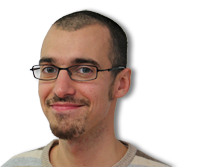Taught courses
Software Atelier I: Software Tools (Fall 2011)
The goal of the Software Atelier is to teach the student to become a computing professional. The main objective of Software Atelier I is to learn to use some fundamental software tools and the principles behind those tools.
The atelier gives an introduction to the role of computing and computer scientists in the professional world as well as society in general and provides an environment for the students to learn about and use specific software tools, work with other students in group projects, and present the results of their projects to the class.
Software Atelier IV: Software engineering for web application (Spring 2010, Spring 2009)
The goal of the course is to learn how to design and develop sophisticated web applications by "thinking in objects". The course is organized in four parts: At the beginning the students learn smalltalk, a dynamic object oriented language, and Visualworks, an IDE to develop smalltalk code. In the second part of the course the students learn Seaside (the web development framework), meta-modeling with Magritte (a fully dynamic meta-description framework), and objects percistency. The topics for the third part of the course are web 2.0 technologies in Seaside (like AJAX), Javascript libraries, APIs (for example google maps API) and basic principles about web usability design. In the last part the students are involved in projects in which they have to develop web applications with Seaside and Magritte.
